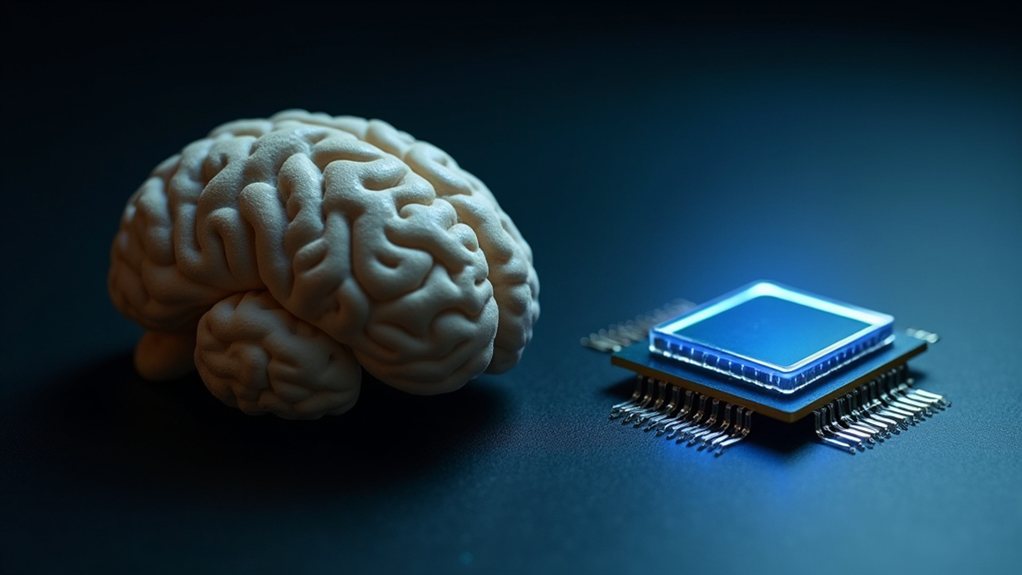Generative AI is quietly eroding cognitive skills when used without caution. Research shows 83% of users can’t recall content they “wrote” with AI, and continued use leads to a concerning case of mental muscle atrophy. Think of AI as the cognitive equivalent of DoorDash—convenient but terrible for your mental health long-term. Younger users face the highest risk. The solution? Treat AI tools like dessert, not your daily bread. The deeper story reveals even more troubling patterns.
While technological innovations typically promise to make us smarter, stronger, or somehow better versions of ourselves, generative AI may be pulling a fast one on our gray matter. That helpful AI writing assistant might be more of a cognitive frenemy than the productivity pal it claims to be.
Research paints a concerning picture of what happens when we outsource our thinking. A startling 83% of AI users couldn’t recall content they had just “written” with AI help. It’s like hiring someone to do your push-ups and wondering why your arms aren’t getting stronger.
The cognitive consequences don’t stop at memory. Microsoft Research discovered that after extended AI use, people become less likely to attempt reasoning on their own and show diminished performance when they do. Think of it as intellectual muscle atrophy – if you don’t use it, you quite literally lose it.
Young and novice users face particular risks. Without established metacognitive frameworks, they’re susceptible to what researchers call “metacognitive laziness” – a fancy term for letting AI do the heavy mental lifting while your brain takes an extended coffee break. MIT’s study revealed that ChatGPT users demonstrated low executive control and decreased attentional engagement compared to those who relied on their own brains.
Even creativity takes a hit. Though your individual writing might improve with AI assistance, studies show that group creativity often declines when artificial intelligence enters the chat. It’s as if the AI becomes the loudest voice in the brainstorming session, drowning out the weird, wonderful human ideas that might have emerged otherwise. Despite its productivity benefits, AI-generated content often lacks the emotional intelligence and cultural nuances that resonate with human readers.
The solution isn’t abandoning these tools entirely – that ship has sailed. Instead, experts recommend consciously questioning AI outputs and deliberately engaging with the material.
Think of your AI relationship like a diet – occasional indulgence is fine, but subsisting entirely on algorithmic fast food will leave your cognitive abilities soft and undernourished.
The next time you’re tempted to let ChatGPT handle that report or email, remember: convenience today might mean cognitive edge lost tomorrow. Your future self’s brain function may depend on it.






